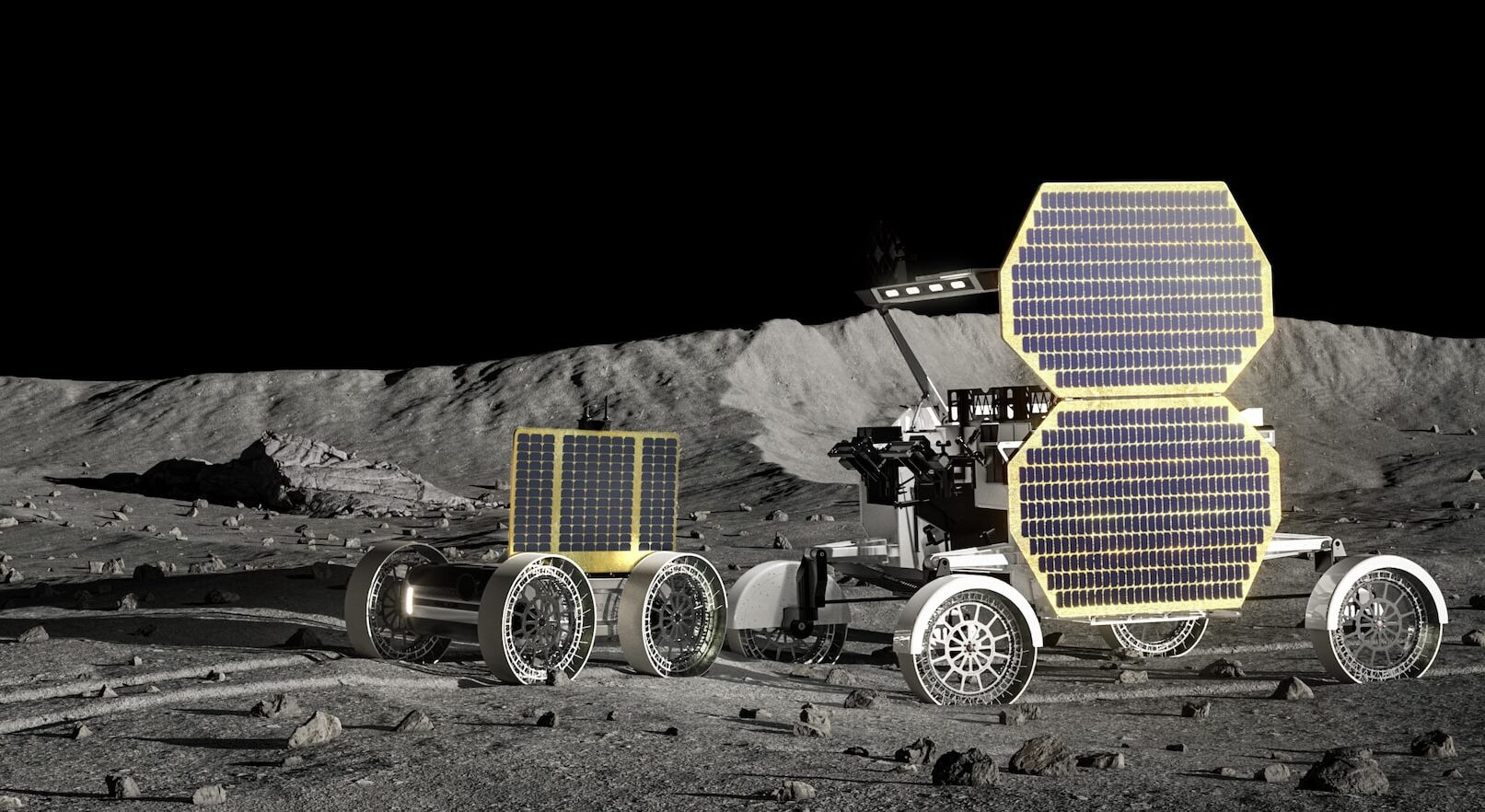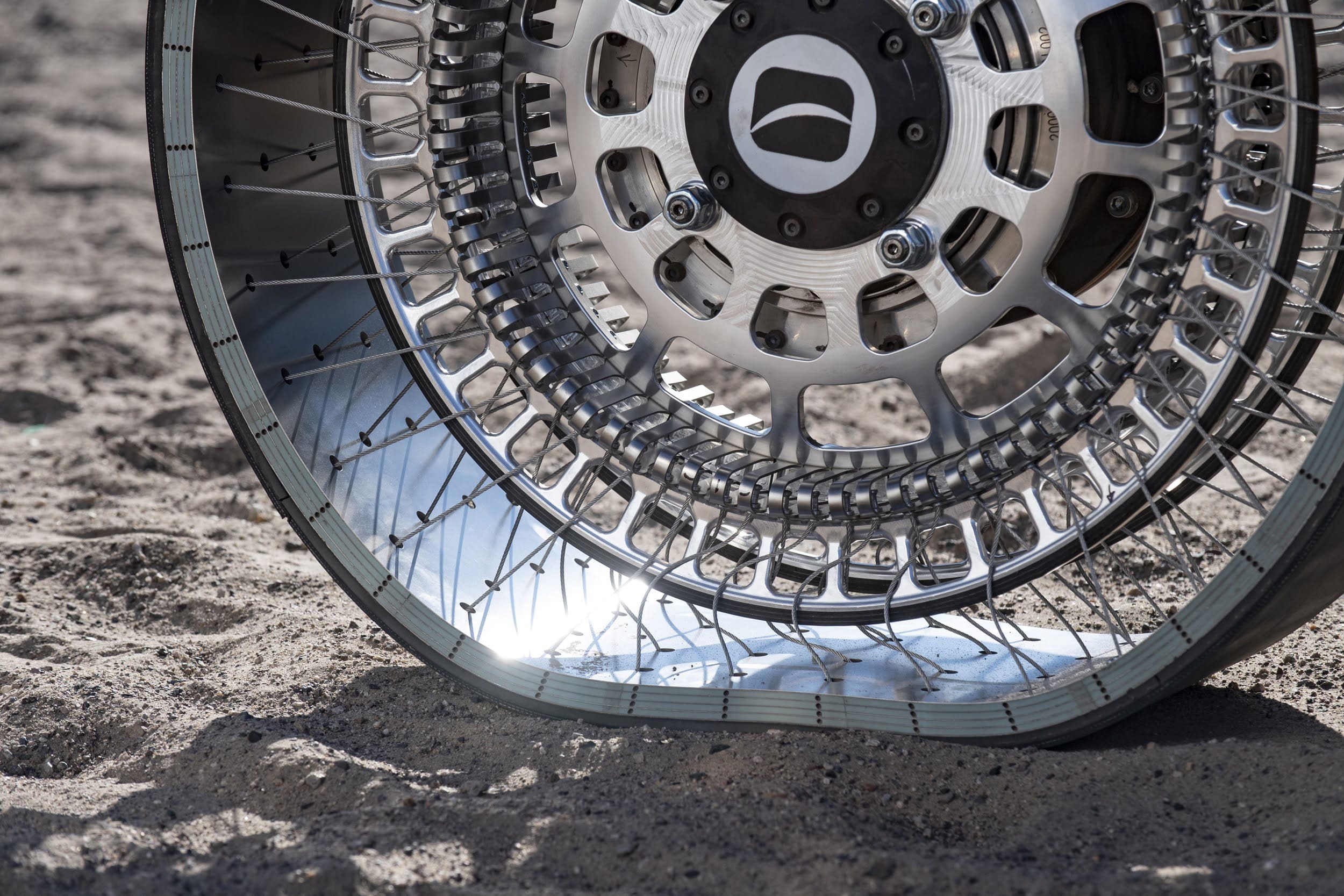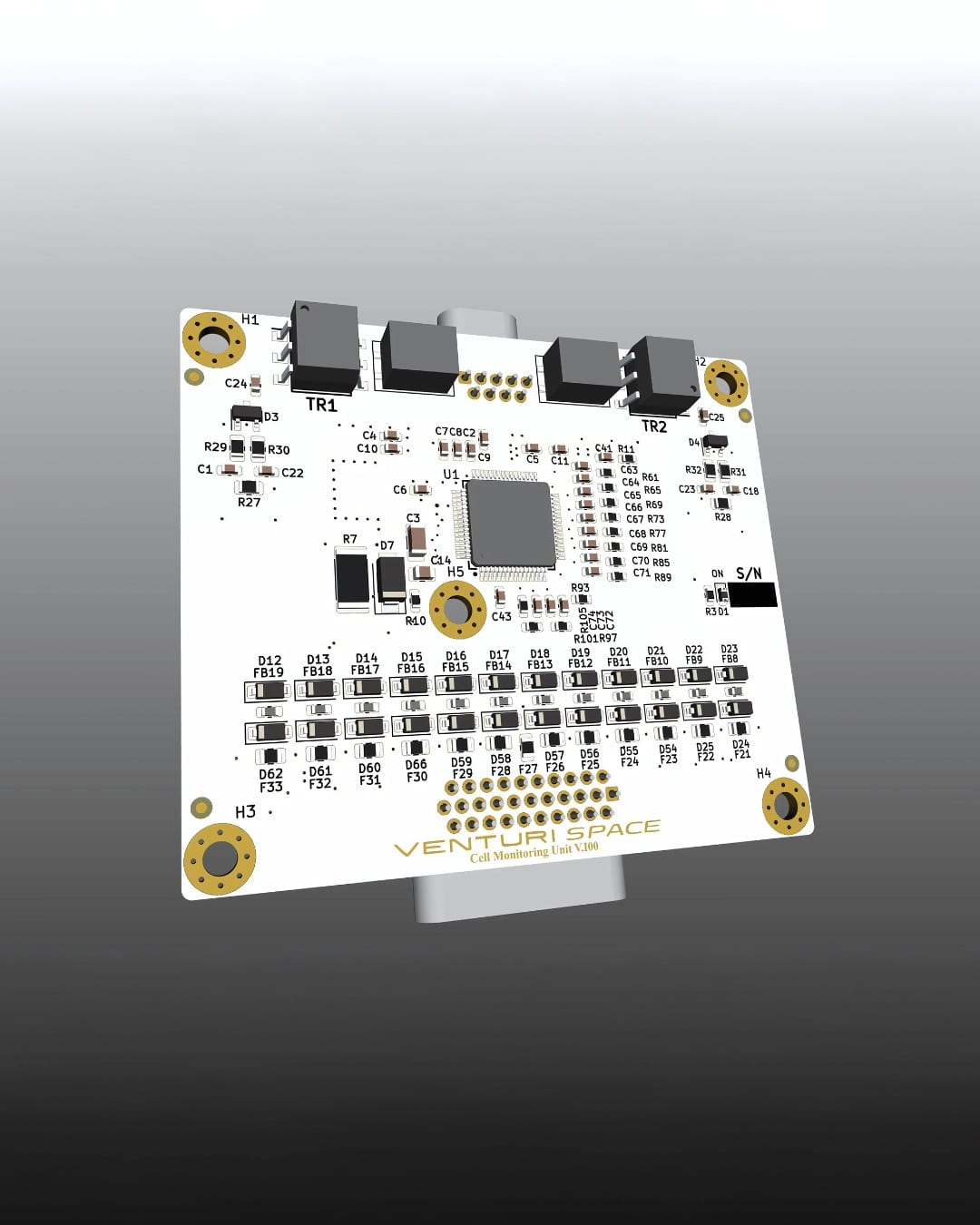About
Venturi Space
Lunar mobility by Venturi Space: excellence times infinity.
2021

Powered
by innovation
After two decades of innovation in terrestrial electric vehicles, Venturi’s President Gildo Pastor has repositioned the firm in the space sector, aiming to forge new collaborations with NASA (and the ESA in a second phase).
The change of strategy ties in with NASA’s Artemis programme that will see humanity return to the Moon in 2030, after the US space agency invited bids from contractors to design, manufacture, and operate a lunar terrain vehicle for transporting astronauts and equipment.
2024
Exploring the Moon
In 2024, NASA pre-selected the rover FLEX from the American company Venturi Astrolab, Inc. Its strategic partner, Venturi Space, is in charge of designing and manufacturing the wheels (in Switzerland), the batteries (in Monaco) and the battery management systems (in France).
No earlier than December 2025
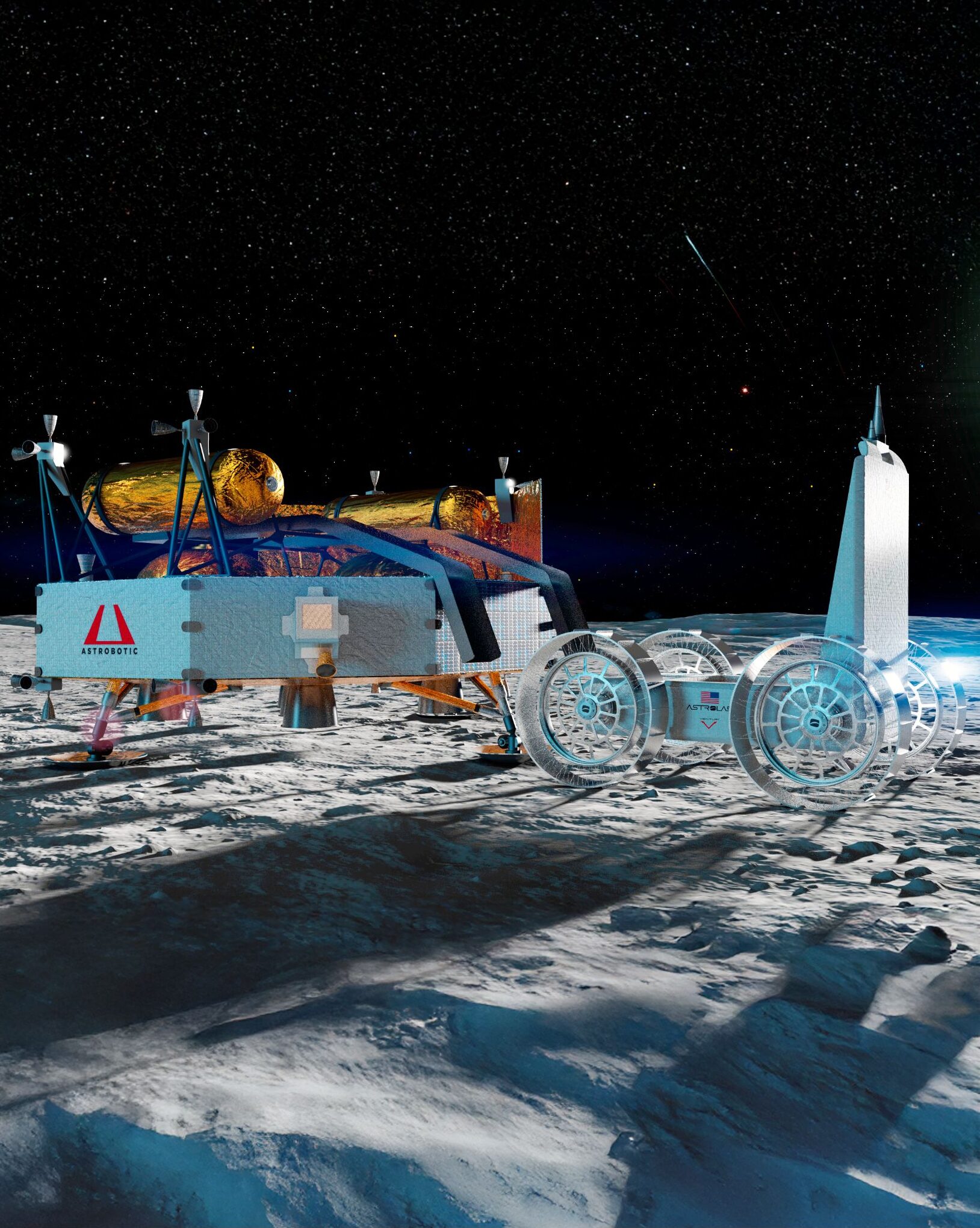
Astrobotic’s Griffin Mission One
(Griffin-1)
Unveiled at the 75th International Astronautical Congress in Milan, the FLIP rover will land aboard Astrobotic’s lander at the lunar South Pole no earlier than December 2025. Its mission is to test, under real conditions, the innovative technologies developed by Venturi Astrolab and Venturi Space, paving the way for its larger counterpart, FLEX, which is set for its first journey in 2028.
2028
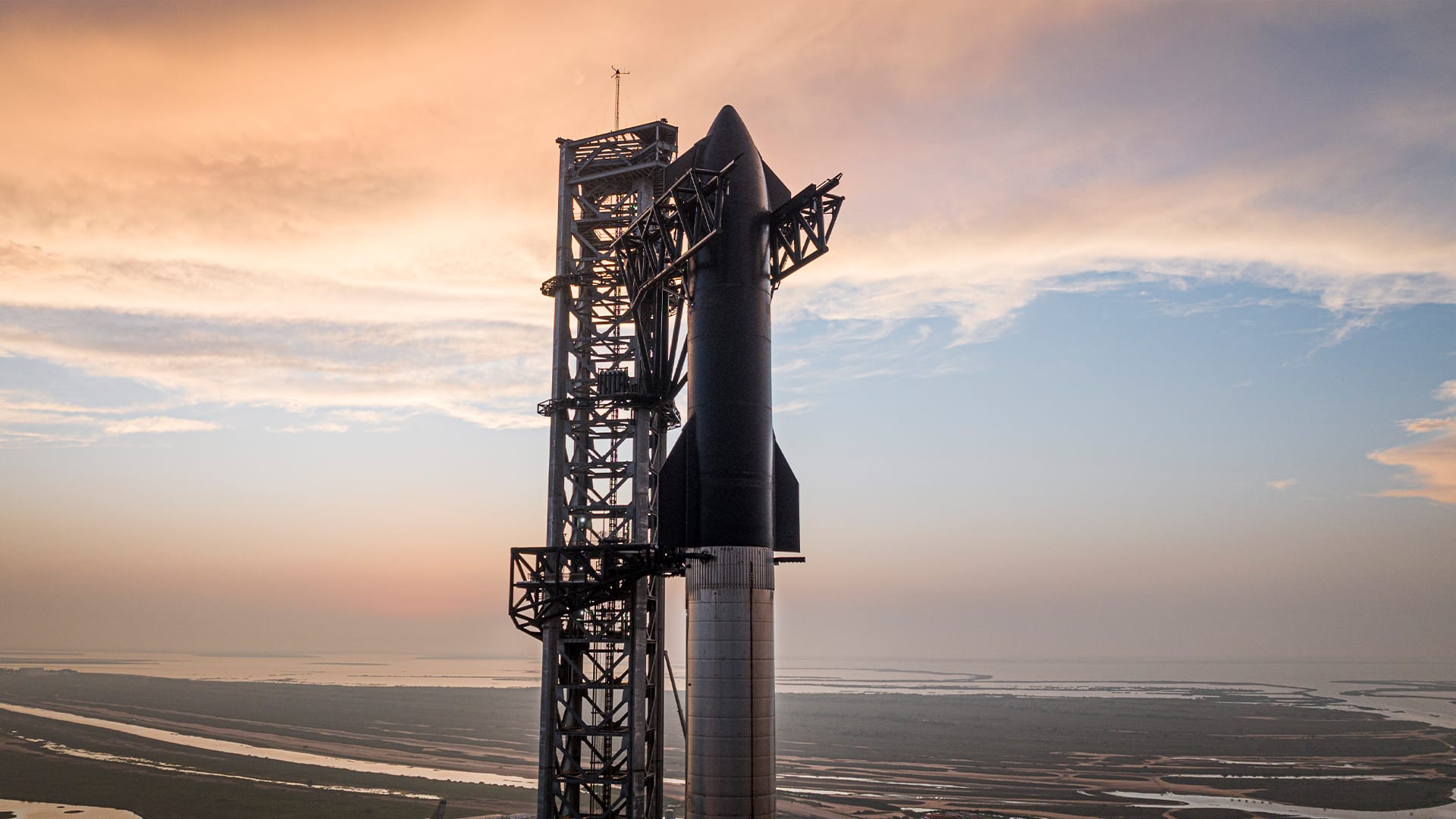
SpaceX first, then NASA
The astromobile, designed by Sacha Lakic, will be transported in 2028 to the lunar South Pole by SpaceX. Controlled remotely from Earth, it will conduct scientific experiments and commercial activities.
In the meantime, NASA may select the vehicle. Consequently, from 2030 onwards, most of the rover’s operational time would be devoted to missions for the US space agency. Outside these missions, the rover would carry on its activities for private purposes.
2030 : ON BOTH SIDES OF THE ATLANTIC
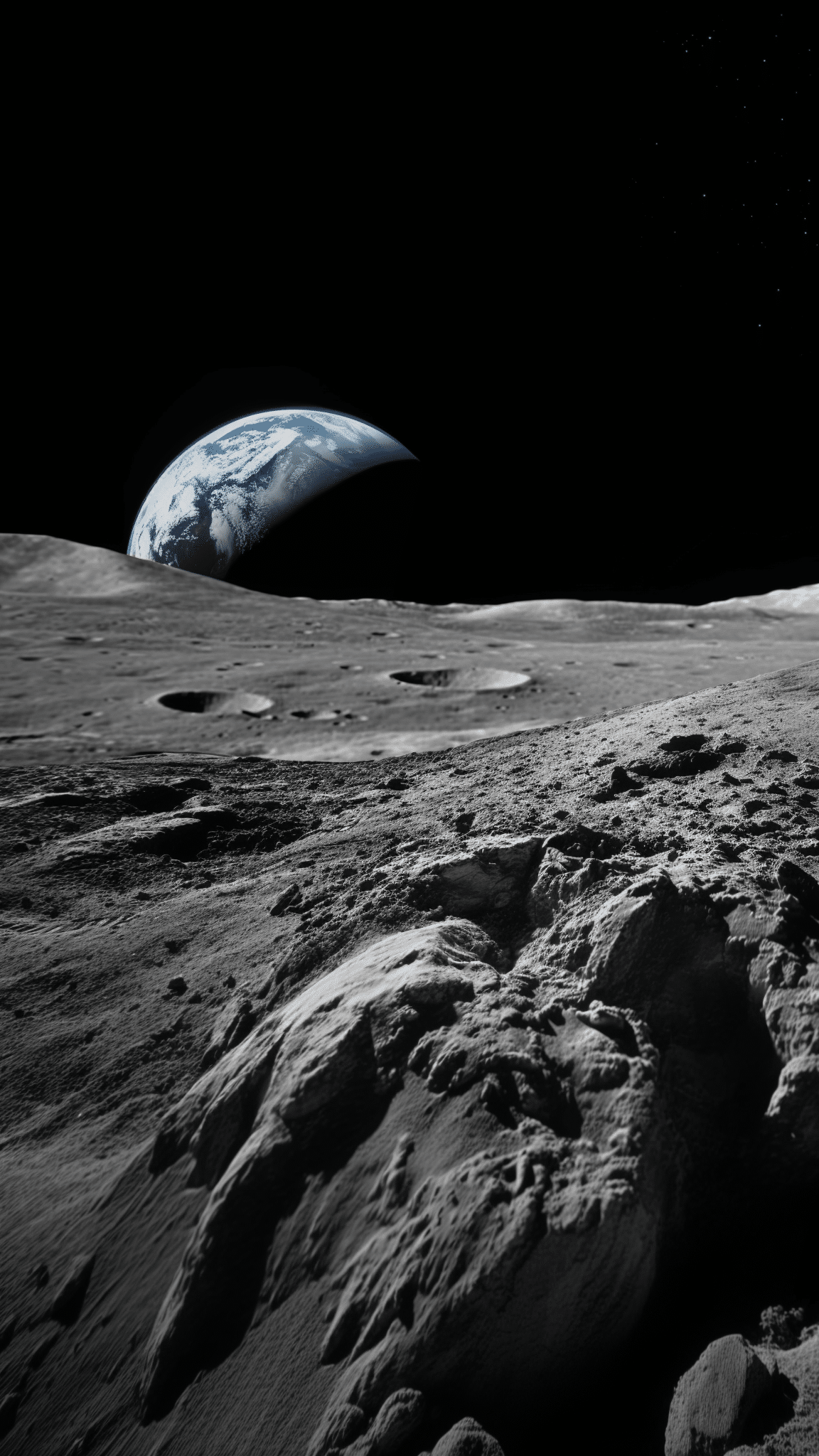
The European Space Agency (ESA) has three stated objectives:
- To establish a long-term European presence in low Earth orbit.
- To send the first European astronauts to explore the Moon’s surface by 2030.
- To take part in the first crewed mission to Mars.
Venturi Space wants to help the ESA achieve those objectives, by providing a comprehensive LTV service that includes everything from designing to operating the vehicle.
Mobility on the surface of other celestial bodies is already one of the big challenges for the coming decades. To get ahead of the curve, Venturi Space has already approached the ESA.
Its project builds on real-world experience acquired with the rover MONA LUNA created by the company’s strategic US partner Venturi Astrolab, Inc. for which it designed the wheels and batteries.
